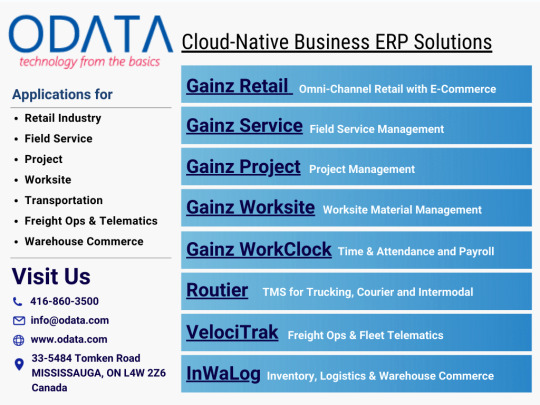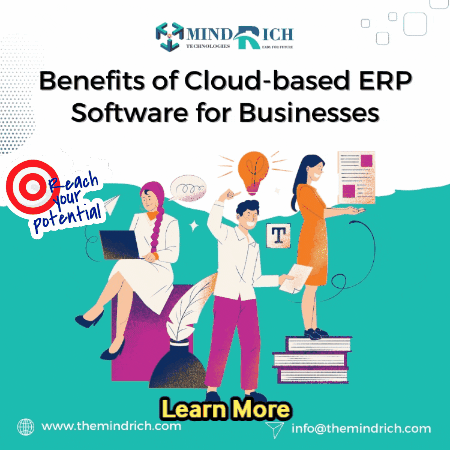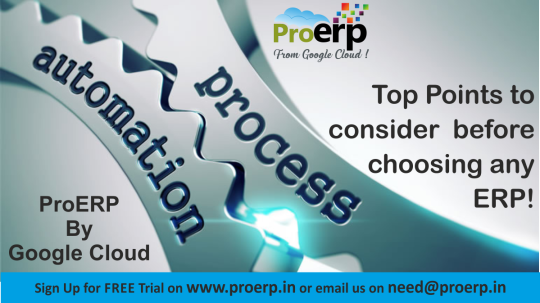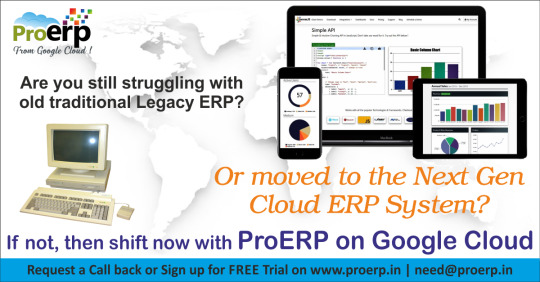#Cloud ERP solutions
Text

Efficiently streamline your business operations with Odata Solutions.
Take your Business to the next level with us.
so Upgrade your ERP to Odata Solutions and experience a seamless, integrated ERP solution for all your business needs.
Get an ERP, Book a Free Demo!
📞 (416) 860-3500
Visit us - www.odata.com
#erp#cloud ERP#Odata Solutions#cloud erp solutions#retail erp software#business erp#erp implementation#erp software#erp for small business#cloud erp#erpsolutions#erpcompany#canada#erpdevelopment
1 note
·
View note
Text
Embracing the Future: The Advantages of Cloud ERP Solutions
In today’s rapidly evolving business landscape, companies must adopt innovative technologies to stay competitive. One such technology is Cloud ERP. These solutions offer a comprehensive, integrated approach to managing business processes. This article explores the benefits of cloud ERP solutions, delves into the functionalities of a cloud ERP system, and provides tips on choosing the right solution for your business.
What are Cloud ERP Solutions?
Cloud ERP (Enterprise Resource Planning) solutions are software systems hosted on a cloud server. They integrate various business processes, including finance, human resources, supply chain, and customer relations, into a single platform. This integration enables real-time access to data and applications, facilitating better decision-making and efficiency.
Key Benefits of Cloud ERP Solutions
Accessibility: Access business data from anywhere with an internet connection.
Scalability: Easily scale resources up or down based on business needs.
Cost-Effective: Lower costs by reducing the need for on-premise hardware and maintenance.
Enhanced Security: Cloud providers offer robust security measures to protect sensitive data.
Why Your Business Needs a Cloud ERP System
Implementing a cloud ERP system can revolutionize your business operations. Here’s why investing in this technology is essential:
Improved Operational Efficiency
Cloud ERP systems streamline various business processes into a single, integrated platform. This reduces the time and effort required to manage these processes separately. Automation of routine tasks further enhances efficiency, allowing employees to focus on more strategic activities.
Real-Time Data and Analytics
One of the most significant advantages of cloud ERP systems is the ability to access real-time data. This feature provides businesses with up-to-date information, enabling better decision-making. Real-time analytics also allow companies to identify trends, track performance, and make data-driven decisions.
Flexibility and Customization
Every business has unique needs. A cloud ERP system can be customized to meet these specific requirements. Whether it’s adding new modules or integrating with other software, cloud ERP systems offer the flexibility needed to adapt to changing business environments.
Selecting the Right Cloud ERP Solution
Choosing the right cloud ERP solution is crucial for maximizing the benefits. Here are some tips to help you make the right choice:
Assess Your Business Needs
Start by identifying your business’s specific needs and goals. Consider the number of users, essential features, and your budget. This assessment will help you narrow down the options and find a solution that aligns with your requirements.
Evaluate Different Providers
Research various cloud ERP providers and their offerings. Look for providers with a strong reputation and experience in your industry. Check client testimonials and case studies to gauge customer satisfaction.
Request Demos and Trials
Most providers offer demos or trial versions of their software. Use these opportunities to assess the usability and functionality of the cloud ERP system. Involve key stakeholders in the evaluation process to ensure the solution meets their needs.
Implementing Cloud ERP: Best Practices
Successful implementation of a cloud ERP system involves careful planning and execution. Follow these best practices for a smooth transition:
Define Clear Objectives
Clearly define your business objectives and how the ERP system will help achieve them. Having a clear vision will guide the implementation process and ensure everyone is aligned with the goals.
Engage Stakeholders
Involve key stakeholders from the beginning. Their input and support are crucial for a successful implementation. Regularly communicate progress and address any concerns they may have.
Plan for Change Management
Implementing a cloud ERP system often requires changes in business processes and workflows. Prepare your team for these changes by providing adequate training and support. Encourage a culture of adaptability and continuous improvement.
Monitor and Optimize
Once the cloud ERP system is implemented, continuously monitor its performance. Gather feedback from users and make necessary adjustments to optimize its use. Regularly update the system to ensure it remains aligned with your business needs.
Conclusion
Investing in cloud ERP solutions can significantly enhance your business operations. With the right cloud ERP system, you can streamline processes, improve efficiency, and make data-driven decisions. By selecting a reliable provider and following best practices for implementation, your business can harness the full potential of cloud ERP technology.
Embrace the future of business management with cloud ERP solutions and unlock your organization’s full potential.
0 notes
Text
What Makes Cloud ERP Software Essential for Modern Businesses?
In today's fast-paced business environment, cloud ERP software has become a cornerstone for companies seeking efficiency and scalability. Cloud ERP systems offer a suite of applications that streamline processes across various departments, including finance, human resources, supply chain, and more. These systems enable real-time data access and reporting, fostering better decision-making and operational agility.
One of the primary benefits of cloud-based ERP software is its accessibility. Unlike traditional on-premise solutions, cloud ERP solutions can be accessed from anywhere with an internet connection. This flexibility is particularly advantageous for businesses with remote or distributed teams. Additionally, cloud ERP software is typically more cost-effective, as it eliminates the need for extensive hardware and maintenance costs.
Security is a significant concern for businesses, and cloud ERP systems are designed with robust security measures to protect sensitive data. Providers of cloud ERP solutions implement advanced encryption and regular security updates to ensure data integrity and compliance with industry standards.
Furthermore, cloud ERP software is highly scalable, allowing businesses to easily adjust their resources as they grow. This scalability ensures that companies can handle increased workloads without the need for significant infrastructure changes.
In summary, adopting a TYASuite cloud ERP system can transform business operations, offering enhanced flexibility, security, and scalability. As businesses continue to evolve, the integration of cloud-based ERP software will likely remain a critical factor in maintaining competitive advantage and operational efficiency.
0 notes
Text
Embracing the Future: The Advantages of Cloud ERP Solutions

In today’s rapidly evolving business landscape, companies must adopt innovative technologies to stay competitive. One such technology is Cloud ERP. These solutions offer a comprehensive, integrated approach to managing business processes. This article explores the benefits of cloud ERP solutions, delves into the functionalities of a cloud ERP system, and provides tips on choosing the right solution for your business.
What are Cloud ERP Solutions?
Cloud ERP (Enterprise Resource Planning) solutions are software systems hosted on a cloud server. They integrate various business processes, including finance, human resources, supply chain, and customer relations, into a single platform. This integration enables real-time access to data and applications, facilitating better decision-making and efficiency.
Key Benefits of Cloud ERP Solutions
Accessibility: Access business data from anywhere with an internet connection.
Scalability: Easily scale resources up or down based on business needs.
Cost-Effective: Lower costs by reducing the need for on-premise hardware and maintenance.
Enhanced Security: Cloud providers offer robust security measures to protect sensitive data.
Why Your Business Needs a Cloud ERP System
Implementing a cloud ERP system can revolutionize your business operations. Here’s why investing in this technology is essential:
Improved Operational Efficiency
Cloud ERP systems streamline various business processes into a single, integrated platform. This reduces the time and effort required to manage these processes separately. Automation of routine tasks further enhances efficiency, allowing employees to focus on more strategic activities.
Real-Time Data and Analytics
One of the most significant advantages of cloud ERP systems is the ability to access real-time data. This feature provides businesses with up-to-date information, enabling better decision-making. Real-time analytics also allow companies to identify trends, track performance, and make data-driven decisions.
Flexibility and Customization
Every business has unique needs. A cloud ERP system can be customized to meet these specific requirements. Whether it’s adding new modules or integrating with other software, cloud ERP systems offer the flexibility needed to adapt to changing business environments.
Selecting the Right Cloud ERP Solution
Choosing the right cloud ERP solution is crucial for maximizing the benefits. Here are some tips to help you make the right choice:
Assess Your Business Needs
Start by identifying your business’s specific needs and goals. Consider the number of users, essential features, and your budget. This assessment will help you narrow down the options and find a solution that aligns with your requirements.
Evaluate Different Providers
Research various cloud ERP providers and their offerings. Look for providers with a strong reputation and experience in your industry. Check client testimonials and case studies to gauge customer satisfaction.
Request Demos and Trials
Most providers offer demos or trial versions of their software. Use these opportunities to assess the usability and functionality of the cloud ERP system. Involve key stakeholders in the evaluation process to ensure the solution meets their needs.
Implementing Cloud ERP: Best Practices
Successful implementation of a cloud ERP system involves careful planning and execution. Follow these best practices for a smooth transition:
Define Clear Objectives
Clearly define your business objectives and how the ERP system will help achieve them. Having a clear vision will guide the implementation process and ensure everyone is aligned with the goals.
Engage Stakeholders
Involve key stakeholders from the beginning. Their input and support are crucial for a successful implementation. Regularly communicate progress and address any concerns they may have.
Plan for Change Management
Implementing a cloud ERP system often requires changes in business processes and workflows. Prepare your team for these changes by providing adequate training and support. Encourage a culture of adaptability and continuous improvement.
Monitor and Optimize
Once the cloud ERP system is implemented, continuously monitor its performance. Gather feedback from users and make necessary adjustments to optimize its use. Regularly update the system to ensure it remains aligned with your business needs.
Conclusion
Investing in cloud ER P solutions can significantly enhance your business operations. With the right cloud ERP system, you can streamline processes, improve efficiency, and make data-driven decisions. By selecting a reliable provider and following best practices for implementation, your business can harness the full potential of cloud ERP technology.
Embrace the future of business management with cloud ERP solutions and unlock your organization’s full potential.
0 notes
Text

#Cloud Based ERPs#Cloud Based ERP Software#Cloud Based ERP Solutions#Cloud Based ERP#Cloud Based Enterprise Resource Planning#Cloud ERP#cloud enterprise resource planning#Cloud ERP Software#Cloud ERP Solutions
0 notes
Text
0 notes
Text
Top Points To Consider Before Choosing Any ERP!
ProERP By Google Cloud
Please email us on [email protected] or call /drop a message on: 9359453615
For More Information Visit us @ https://proerp.in

#erpsoftwares#clouderp#erpsolutions#proerp#top erp systems#erp system#cloud based erp#cloud erp solutions#cloud computing#erp software providers#cloud erp
0 notes
Text
Improve your customer experience and streamline your business operations with SaaS ERP solutions. Discover the benefits of ERP systems and how SaaS ERP can help you monitor all aspects of your business.
0 notes
Text
The Future of Business: Embracing Cloud ERP Solutions
In today's fast-paced business environment, cloud ERP solutions have become indispensable. These systems provide robust, scalable, and flexible options for businesses seeking to streamline operations. Cloud ERP systems integrate various business processes, enhancing efficiency and decision-making capabilities.
Cloud-based ERP software offers several advantages over traditional on-premise systems. Firstly, it reduces IT infrastructure costs significantly. Companies no longer need to invest in expensive hardware or worry about maintenance, as the cloud provider handles these tasks. Additionally, cloud ERP software is accessible from anywhere with an internet connection, providing flexibility for remote work.
One of the primary benefits of cloud ERP solutions is their ability to update in real-time. This feature ensures that all users have access to the most current data, facilitating better collaboration and faster decision-making. Moreover, cloud ERP systems are highly scalable, allowing businesses to add or remove users and functionalities as needed without extensive downtime or additional costs.
In India, the adoption of cloud ERP software is on the rise. Companies across various industries are recognizing the benefits of these systems, such as improved data security, compliance with local regulations, and enhanced operational efficiency. The Indian market offers numerous options for businesses of all sizes, from small startups to large enterprises.
In conclusion, TYASuite cloud ERP solutions are revolutionizing how businesses operate. By leveraging cloud ERP systems, companies can achieve greater flexibility, reduced costs, and improved overall performance. As more businesses in India and globally adopt these technologies, the future of enterprise resource planning looks increasingly cloud-based.
0 notes
Text
https://www.betaarrays.com/services/erp-system

0 notes
Text
Podcast: Benefits of Cloud-based ERP Software for Businesses
Cloud-based ERP software offers a plethora of benefits for businesses. Imagine accessing your data, managing operations, and collaborating with teams from anywhere, anytime. Cloud ERP cuts costs by eliminating upfront hardware and software expenses. It also boasts automatic updates, enhanced security, and seamless scalability to fit your growing needs. See more benefits of Cloud ERP Software System by MindRich Technologies.
#Cloud Based ERPs#Cloud Based ERP Software#Cloud Based ERP Solutions#Cloud Based ERP#Cloud Based Enterprise Resource Planning#Cloud ERP#cloud enterprise resource planning#Cloud ERP Software#Cloud ERP Solutions#odoo erp#odoo 17#odoo erp software#mindrich technologies#SoundCloud
0 notes
Text
0 notes
Text

Are you still struggling with old traditional Legacy ERP?
Or moved to the Next Gen Cloud ERP System?
If not, then shift now with ProERP on Google Cloud..
Please email us on [email protected] or call /drop a message on: 9359453615
Visit us @ https://proerp.in
#erpsoftwares#clouderp#erpsolutions#proerp#cloud erp solutions#erp software providers#erp system#top erp systems#cloud based erp
0 notes
Text
The food & beverage industry changes constantly based on trends, resources available, and compliance requirements. In today's scenario, It is almost impossible to do this without cloud based ERP solution. With time, more businesses realize the potential of an ERP system for the food and beverage industry.
#business management solutions#cloud based ERP solution#Cloud ERP#cloud ERP implementation#cloud ERP implementation partner#Cloud ERP Software#Cloud ERP solutions#cloud ERP system#cloud-based ERP software#Cloud-based ERP systems#cloud-based F&B ERP#cloud-based solution#D365 Business Central#ERP for food manufacturers#Food & beverage ERP solution
0 notes
Text
Why Cloud ERP Software Is Ideal For Growing Businesses
For a firm to grow, choosing the appropriate cloud ERP system is essential. Successful business performance depends on efficient resource planning, management, and implementation. It enables businesses to efficiently carry out business projects by allocating the appropriate resources to the relevant areas.
Implementing the right cloud ERP software enables:
Affordable and simple to deploy
Cloud ERP solutions is more cost-effective and simpler to adopt than traditional systems. It benefits small businesses in particular because it lowers the costs associated with system implementation and the initial cash expenditure. It allows businesses to benefit from the ERP system without going over budget.
Implementation and flexibility
Today, versatility is a requirement for business growth. Improved flexibility, accessibility, and ease of integration are features that cloud-based ERP solutions offer, which are essential for addressing a range of requirements and changing business models. Cloud ERP systems increase the potential for implementing custom features to satisfy specific requirements.
Improved security
Information privacy is crucial as business operations are becoming increasingly data-intensive. On the other side, cloud ERPs provide a better level of information security and guarantee secure encryptions. The majority of cloud-based ERP solutions adhere to established protocols to anticipate risks and stop criminal activity, as well as standard data privacy laws.
Enhanced business performance
It helps streamline performance across all operations and allocation. Cloud ERP system helps keep operations up to date and improves productivity.
TYASuite Cloud ERP software is not just cost effective but also faster, automates processes and flexible for both small and medium sized businesses.
0 notes
Text
Elevate Efficiency with Top-tier ERP Software for Engineering Companies in Mumbai, India
Unlock unparalleled efficiency for your engineering company with ShantiTechnology's (STERP) advanced ERP software solutions. Tailored specifically for engineering companies in Mumbai, India, our ERP solutions redefine operational excellence. As one of the leading ERP solution providers in India, we bring you state-of-the-art technology to streamline processes, enhance collaboration, and boost productivity.
Experience the next level of business management with ShantiTechnology (STERP) – your trusted partner for cutting-edge ERP software tailored for engineering companies in India and specifically optimized for those in Mumbai.
#ERP software for engineering company#ERP software for engineering companies in India#ERP software for engineering companies in Mumbai#ERP solution providers in India#ERP software#ERP system#cloud ERP#ERP solutions#ERP India#Business Solutions#SAP Business One#Supply Chain Management
7 notes
·
View notes